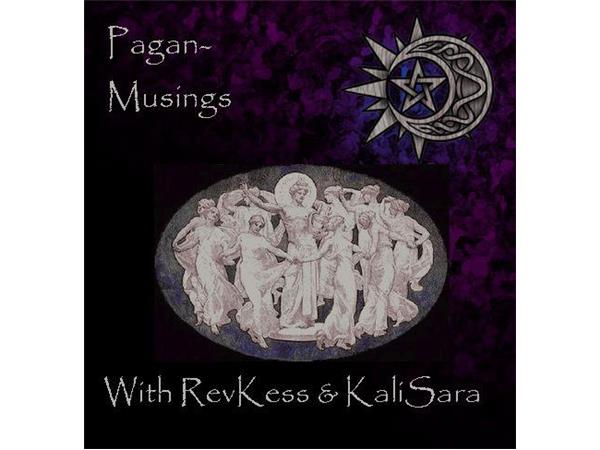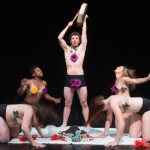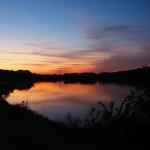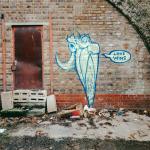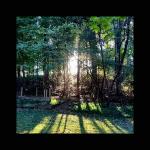“Everybody needs beauty as well as bread, places to play in and pray in, where Nature may heal and cheer and give strength to body and soul alike.”
— John Muir, The Yosemite
“Thousands of tired, nerve-shaken, over-civilized people are beginning to find out that going to the mountains is going home; that wildness is a necessity; and that mountain parks and reservations are useful not only as fountains of timber and irrigating rivers, but as fountains of life.”
— John Muir, Our National Parks
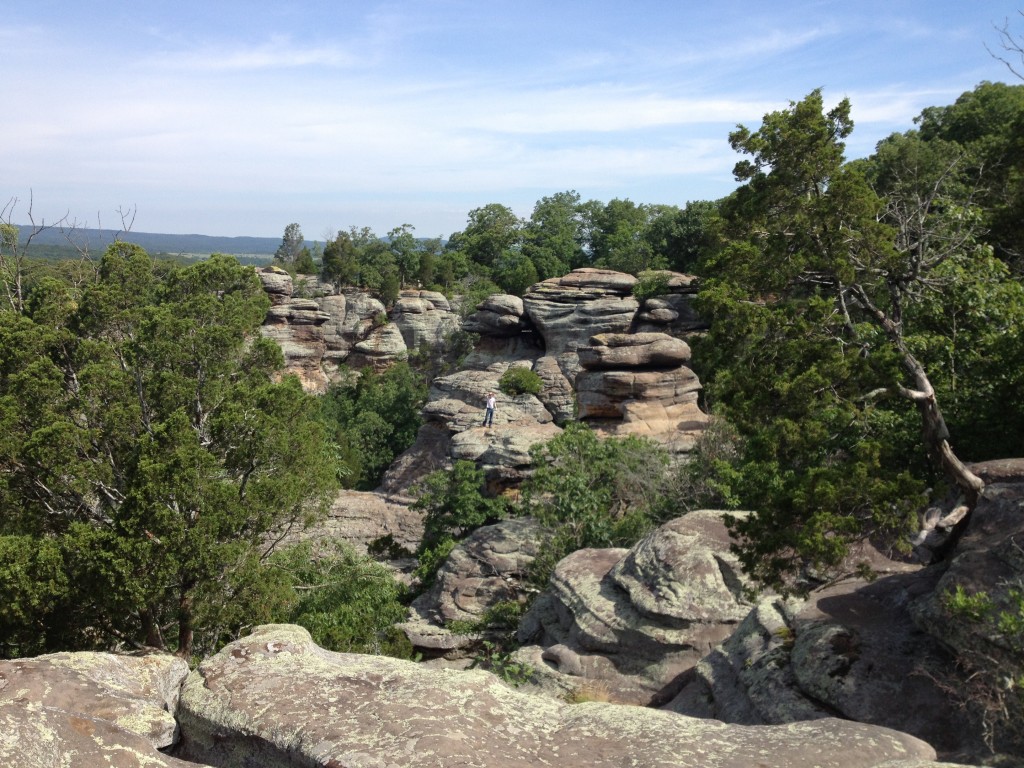
A few weeks ago, I went camping with my family to Shawnee National Forest in southern Illinois over the summer solstice weekend. Needless to say, it was hot, even in the shade. For once my allergies weren’t that bad. And we were oddly free of mosquitos and other biting insects, although my 11-year old daughter was freaked out by the many, many Daddy longlegs. But my 15-year old son griped incessantly about hiking … before, during, and after our 4 hour hike. Then we got lost on the hike and had to turn back (I hate turning back). I forgot the camp chairs, which made sitting around the fire less than comfortable. And then, on the way back home, we realized we had gotten into poison ivy — which I am just now getting over. It was enough to make me wonder why I drove 12 hours round trip to do this. Well … not really.
In fact, even while I sat at home scratching my poison ivy, I never once regretted the trip. I enjoyed every minute of it. And I wondered what it was about this experience that that I find so satisfying. The vistas were beautiful. We saw some fascinating rock formations. And I loved climbing on the rocks. But it was more than that. I just loved being in the woods. It wasn’t like I had any profound “double rainbow experiences” this time either. I was just that, before the trip, I felt a profound longing to get into the woods again. While we were there, I felt like I was right where I needed to be. And when we left, I felt really satisfied, kind of like like I had eaten a really good meal, but in a spiritual sense. Why is that?
The answer occurred to me as I was reading Aldous Huxley’s essay, “One and Many”. Huxley (the author of Brave New World) writes that we moderns are alienated from the instinctive, “passional”, and intuitive side of our being, and we emphasize instead on our intellectual side. As a result, we value abstract, intellectual knowledge over what Huxley calls direct, participative knowledge. He compares the former to an instrument, like a hammer or a knife, and the latter to food. Direct physical knowledge, writes Huxley, is “a nourisher of life”. “Our present tendency,” he says, “is to overvalue the instrument and undervalue the food which alone an give us the vital power and health to use the instrument properly.” “[O]ur excessive love for that abstract knowledge of the general and the uniform … enables us to explain and predict and organize and do so many other useful things, but gives us, alas! no sustenance by which we may live.”
“… there is no psychical nourishment to be drawn from the abstract, instrumental knowledge so much appreciated in a society like out own. Souls are only nourished by a direct participative knowledge of things, by an immediate physical contact, by a relationship involving will, desire, and feeling. (And incidentally, if those who pursue instrumental knowledge do sometimes succeed in deriving a kind of nourishment from their files and screwdrivers, that is due to the fact that they are filled with a passion for these tools, that they pursue their abstractions with appetite and a sort of sensuality.)”
“To live,” writes Huxley, “the soul must be in immediate contact with the world, must assimilate it through all the channels of sense and desire, thought and feeling, which nature has provided for the purpose.”
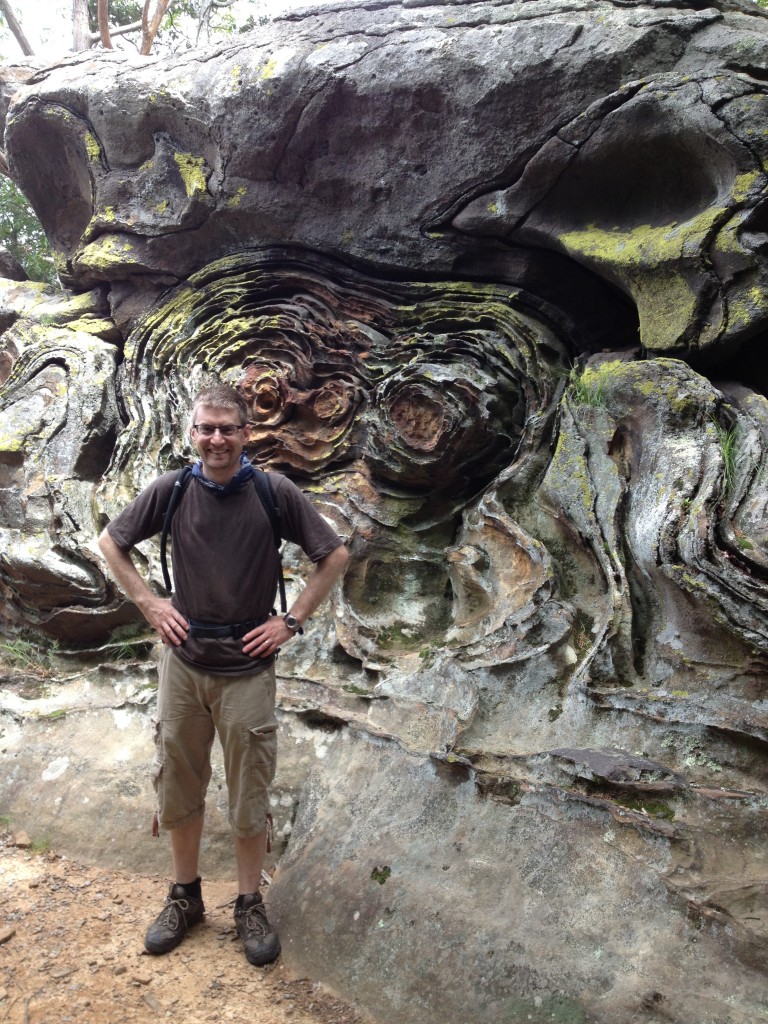
That’s why I felt such a need to get into the woods and why I felt so satisfied when we left, in spite of the heat, poison ivy, and other inconveniences — or maybe because of them. My everyday world is the world of the instrument. Everything has has a function for me, easily controlled. Everything is a tool, ready-at-hand for my use. My everyday world is what Martin Heidegger called a “standing reserve” — it appears to me not as a thing-in-itself, but as a resource for my appropriation. When I go into the woods, though, I encounter a world that is there not for me, but for itself. It is a world that seems much more indifferent to my existence than the ready-made world of tools I left behind. In the world of the woods, my sensual self takes the forefront, and my intellectual self takes a back seat. My primary experience of the world in the woods is the direct, participative knowledge Huxley talks about, instead of the abstract, instrumental knowledge. This, I think is why I enjoy hiking so much. I’m not walking to get some place. I am walking to walk — to be in the woods and to feel myself in my own body, to throw myself up against the world (as I have written elsewhere). And this is why I leave the woods feeling satisfied, just like a hunger has been sated — because it has: a soul-hunger, a hunger for direct, sensory-rich contact with the world.
But it occurs to me that the line between my ordinary instrumental world and the sense-rich world of “nature” is a very subjective one. For one thing, I was in a national park, which is only “wild” by a matter of degree. Above, I contrasted my everyday ready-made world of “tools” and the world of the woods which exists not for me, but for itself. But a lot of the the national park was “instrumentalized”, so to speak. We drove in on paved roads. We camped in a prepared campsite. Water was available from a pump. There were latrines. We hiked on trails which were marked (although not as well as I would have liked). But, in spite of this, the world of the woods was different enough from my everyday experience that I could transition from my instrumental mode of being to the participative mode of being.
To one person, farmland might seem “wild”, at least in comparison with the urban setting they might be more familiar with. To another person, a state park is more of a human environment than a “natural” one. So, if the difference between these two worlds is merely a matter of degree and if the distinction is largely subjective, then that means it is possible to experience the participative mode of being in my everyday world. All that it requires is “unfamiliarizing” myself with that everyday world. (Easier said than done!) There is so much that I take for granted, that my gaze passes casually over, that I rush past. There are birds and trees and dirt and worms and sunlight and wind just outside my air-conditioned office window. I walk by these things every day. I see them through the glass windows of my little cages: my home, my car, my office. Even when I am outside, how often do I pause to really see them, much less touch them or smell them?
Would it be possible to stand in my suburban yard or even in a concrete parking lot and have the same sensual experience of participation that I have in the woods? Surely it would be more difficult, but not impossible, I think. Perhaps this is what John Muir meant when he wrote:
“To the sane and free it will hardly seem necessary to cross the continent in search of wild beauty, however easy the way, for they find it in abundance wherever they chance to be. Like Thoreau they see forests in orchards and patches of huckleberry brush, and oceans in ponds and drops of dew.”
And perhaps this is why children seem to have so much wonder at our mundane world: it has not yet become instrumental for them; they have not yet learned to control it, and so, they have not forgotten how to see it. Annie Dillard writes:
“An infant who has just learned to hold up his head has a frank and forthright way of gazing about him in bewilderment. He hasn’t the faintest clue where he is, and he aims to find out. In a couple of years, what he will have learned instead is how to fake it: he’ll have the cocksure air of a squatter who has come to feel he owns the place. Some unwonted, taught pride diverts us from our original intent, which is to explore the neighborhood, view the landscape, to discover at least where it is that we have been so startlingly set down, if we can’t learn why.”
So this is going to be my challenge: to explore the neighborhood — figuratively and literally — to find “the woods” in my own backyard, in the neighborhood retention pond, in the parking lot of my office building.








